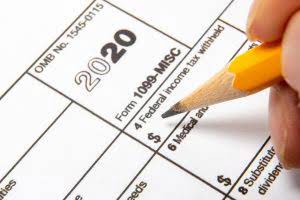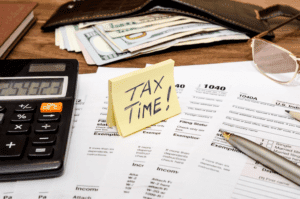
Instead of having to dig for information the IRS requests, documents are neatly organized if you are ever audited. An accounting system for real estate will help you keep track of documentary evidence like invoices and receipts, to help you defend each deduction. When a tenant rent payment hits your bank account, Stessa updates your income statement. One of the best things about using Stessa to manage rental property finances is that the real estate balance sheet updates in real time. Having an accurate calculation of owner’s equity can help an investor to decide when the time is right to refinance a rental property mortgage. Double-entry accounting is the prevailing method of bookkeeping utilized by the majority of businesses in the present day.
Ensuring Proper Reserve Fund Accounting and Management for Property Maintenance
Sales fall through, contracts are renegotiated, and renters cancel their leases. All of these changes can harm your cash flow, especially if you already recorded the income through your accrual-based system. With a cash model, you can record the income when the sale closes or when the renter’s check hits your account.

Benefits of good real estate accounting
In addition, organized financial records can help them identify potential cost-saving opportunities and improve profitability. Learning the basics of bookkeeping is essential for real estate agents to manage their finances effectively. It involves keeping track of transactions, expenses, and income related to properties and commissions. By understanding https://www.bookstime.com/ accounts payable and accounts receivable, agents can ensure accurate financial reporting and make informed business decisions. Real estate bookkeeping is the process of recording and managing financial transactions related to real estate properties. Maintaining meticulous records of income and expenses is the backbone of real estate bookkeeping.
Turn business receipts into data & deductibles
The next step is to look for software that can record your business expenses. With tools like BizXpense Tracker, you can upload receipts and track costs related to certain projects—even if you have to use your personal card. You can also download a gas mileage tracker to log how far your drive. This information will be essential when separating personal and professional gas costs, insurance payments, wear and tear, etc.
- Rental property accounting is truly the backbone of any great real estate business that has proven any type of scale.
- Now that you know the importance of strong real estate accounting and what to expect regarding trackable financial information, it’s time to take a closer look at best practices.
- Finally, having separate accounts simplifies rental property accounting.
- Local laws govern the amount, method, and receipt of security deposits.
- Real estate agents have some of the most diverse expenses in business.
- Second, having a business account provides credibility and boosts the company’s image.
Break free from manual data entry ✨

For example, if you bought a property for $200,000 and sold it for $300,000, it looks like you made a nice profit. However, if you spent 12 months and $90,000 on renovations and marketing, then your $10,000 profit doesn’t seem as impressive. Once you have your operating costs sorted in your accounting system, you can take steps to track all of your business expenses. With the uncertain nature of the real estate business, you can use your OPEX to identify predictable costs related to your company. Your electric bill might fluctuate and gas prices might drive up your monthly bills, but you can anticipate costs related to those operating expenses every single month, regardless of your business. Even if you’re just starting out, you can create processes that help you to scale—and to keep as much commission as you can.

A good real estate accounting system also allows details for each transaction to be entered, so that it is easy to understand what the transaction is for. Many real estate investors are pleasantly surprised to learn that bookkeeping and accounting tasks can often be automated. Real estate-specific software, like Stessa, is specifically designed to help both novice and sophisticated investors make informed decisions about their rental property. Real estate bookkeeping records business expenses and income, along with keeping track of assets and liabilities. A real estate account takes responsibility for the financial aspects of the buying, selling, leasing, and renting of real estate properties. Also known as property accountants, this position also plays an important role for preparing documents for tax season.
- An important deviation from the accrual accounting method is the acknowledgement of prepaid rents.
- Even though real estate accounting might seem intricate, a clear understanding of the basic steps can simplify the process dramatically.
- If the numbers are off track, this regularity allows you to pivot and track down errors in your accounts without huge time lags.
- Put plainly, real estate bookkeeping provides the clarity needed to amplify success.
- By utilizing real estate-specific features in bookkeeping software such as QuickBooks, you can easily track expenses, manage cash flow, and analyze profit and loss for property sales.
- Finally, we examined some of the best practices to put in place for successful real estate accounting.
Manage Rental Property Records
Clarity prevents confusion and ensures partners understand their roles. This involves assessing their financial situation, reputation, track record, and suitability for the initiative’s goals and principles. University units must promptly provide Property Control with accurate location and custodian information for capital equipment tagging. A non-tag number will be assigned for tracking https://www.bookstime.com/real-estate-bookkeeping if an item cannot be tagged. All capital equipment gifted or transferred to the university from another institution, including research grants or contracts, must be reported to Property Control. Property Disposition determines the fair market value of transferred capital equipment, Property Control tags it, and Financial Operations records it in the Asset Management System.
However, even with one rental property, keeping information updated manually can become tedious and it’s easy to have something fall through the cracks. Comprehending rental income tracking is crucial for effective property accounting. Property owners and managers can use this practice to thoroughly monitor their income sources, giving them a detailed financial overview of their rental property’s performance. It’s impossible to plan for every unexpected expense, but experienced property managers typically know how to budget for these events. And rental property accounting software helps them set aside these funds.
How Bookkeeping Helps in Managing Real Estate Transactions
